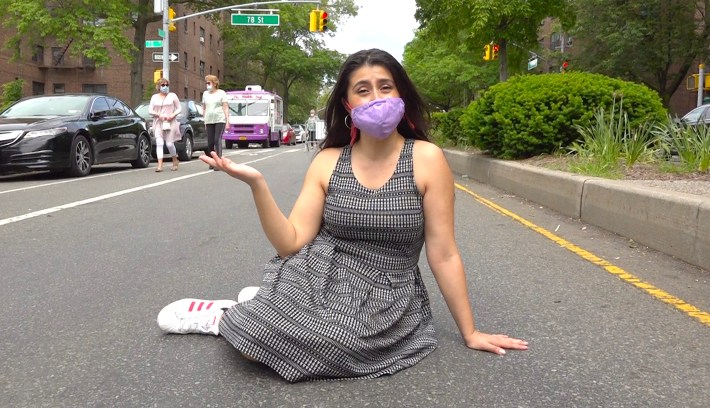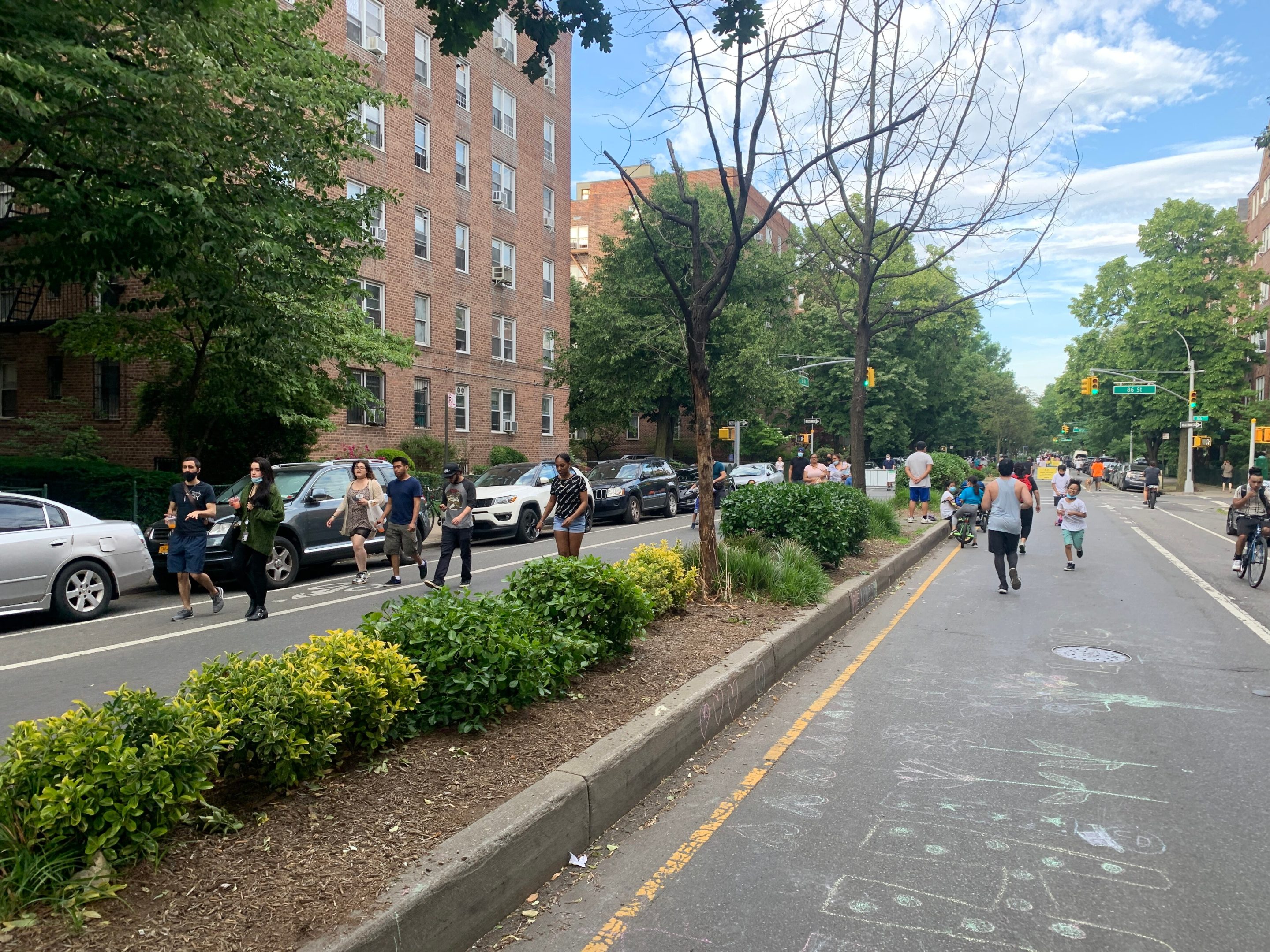Roadways without cars are safer!
That may sound obvious to the livable streets crowd, but it's still debated by car drivers — who have already showed up en masse at a forum to determine the fate of the 34th Avenue open street in Queens and will similarly protest any effort to make existing open streets permanently car-free (the Department of Transportation's next forum, on Feb. 10 and 11, will center on several open streets in North Brooklyn).
Some drivers actually felt the roadway was less safe because there were so many kids around playing. But banishing cars, not caging up the children, is ultimately the safest approach, statistics show.
Streetsblog analyzed periods between June 1 and Dec. 31 in 2019 (when the street remained open to cars all day) and in 2020, when the roadway was closed to thru car traffic between 8 a.m and 8 p.m. every day. Here's what we found:
- In the seven-month period in 2019, 14 people were injured in 14 crashes between 8 a.m. and 8 p.m.
- In the same period in 2020 — when cars are largely banished from 34th Avenue — only two people were injured.
That means injuries fell by 85 percent during the hours when cars were banished from the roadway. And crashes dropped by 78 percent — at a time when the roadway was filled with people. (And before you quibble that injuries are way down all over the city during the pandemic, they're actually not! Comparing the June 1-through-Dec. 31 periods in both years, total injuries were down only about 22 percent, from 37,567 in 2019 to 29,141 in 2020. And total road deaths are actually up 10 percent, from 149 fatalities in 2019 to 165 last year.)
The data doesn't surprise anyone who supports open streets. In fact, State Senator Jessica Ramos went straight to sarcasm.
“Who knew taking vehicles that can kill people off the streets would actually make us safer?" she told Streetsblog, before reverting to sincerity. "The 34th Avenue open street continues to earn its keep, saving our lives and giving us a reprieve from carbon emissions from cars, too!"

People who set up barricades to maintain open streets across the city know what happens on the ground.
"Every time we take away the barricades at 8 p.m., far more cars pull onto the street at regular speeds," said Sophie Maerwitz, who helps set up the Avenue B open street between Sixth and 14th streets. We are seeing a reduction in vehicle numbes and speeds. I also notice cars and trucks slow down when they turn onto Avenue B, which means I’m seeing very few vehicles whip the corners."
Noel Hidalgo, who helps set up barricades for several of North Brooklyn's open streets, also wasn't surprised at the data, but he remains frustrated by what he hears from drivers — and also some people who are concerned about drivers, yet remain opposed to car-free streets.
"There are neighborhood people who say, 'These programs put families and young people on the street and we know how crazy drivers are so you are begging for someone to be injured or killed!'" Hidalgo said. "They feel it's an unsafe program because New York drivers are so psychotic. So I hear that and I say, 'OK, so how do you address the problem?'"
For Hidalgo, the answer is simple: car-free streets.
We reached out to the Department of Transportation for comment on whether the agency will, indeed, ignore car owners who claim streets become less safe when you remove cars, but the agency didn't get back to us.
But let's hope that someone from the agency will at least pull out the statistics at the forums on Feb. 10 from 6-8 p.m. (sign up here) and and Feb. 11 from noon-2 p.m. (sign up here). (For more info, go here).
Then again, some car-free streets are still treacherous ... if you don't know how to cross-country ski, that is:
And here is a pic of a cross country skier on the #34AveOpenStreet yesterday for you! pic.twitter.com/CBlo6tYz9g
— Radlerkönigin (@radlerkoenigin) February 2, 2021






